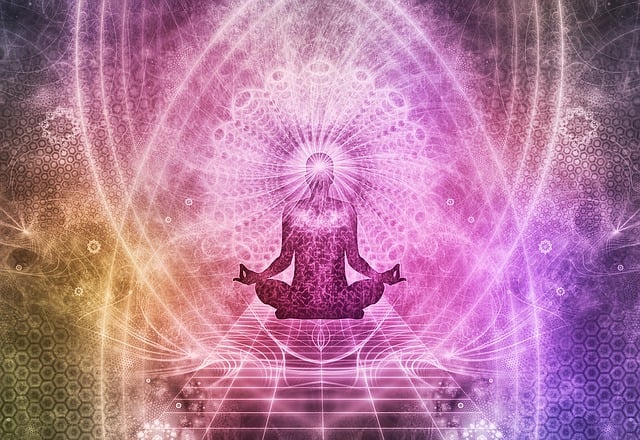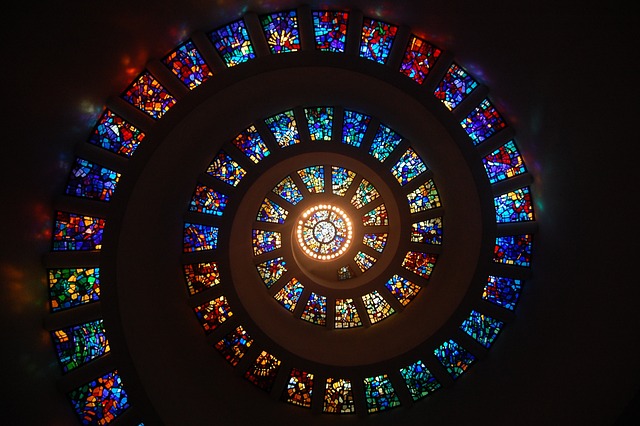
Have you ever wondered if practicing Reiki healing requires spiritual beliefs? Well, you’re not alone! Reiki, a Japanese healing technique, has gained popularity in recent years, but many individuals are still unsure if they need to have specific spiritual beliefs to practice it. In this article, we will delve into the topic and explore whether Reiki healing is accessible to everyone, regardless of their spiritual background.
When it comes to Reiki, spirituality is often a personal and subjective experience. While Reiki has its roots in Japanese Buddhism, it is not exclusively tied to any specific religion. Reiki practitioners believe that this healing practice taps into a universal life force energy, which can be channeled to bring balance and harmony to the body and mind. However, this energy is not contingent on any particular religious beliefs. In fact, Reiki can be practiced by individuals of diverse spiritual backgrounds, or even those who don’t identify with any religion at all. So, if you’ve been hesitant to try Reiki because you thought it was tied to a specific spiritual belief system, fret not! Reiki can be accessed and practiced by anyone, regardless of their religious or spiritual beliefs. In the rest of this article, we will explore the benefits of Reiki, debunk common misconceptions, and provide tips for finding a reputable Reiki practitioner. So, stay tuned to learn more about this fascinating healing modality!
Understanding Reiki Healing
Reiki healing is a technique that has gained popularity in recent years for its potential to promote relaxation, reduce stress, and facilitate healing. But what exactly is Reiki healing, and does it require spiritual beliefs in order to be effective? In this article, we will delve into the world of Reiki healing and explore the different perspectives surrounding its spiritual implications.
What is Reiki Healing?
Reiki healing originated in Japan in the early 20th century and is based on the concept that there is a life force energy that flows through all living beings. Practitioners of Reiki believe that this energy can be channeled and used to promote physical, emotional, and spiritual healing.
During a Reiki session, the practitioner places their hands on or near the recipient’s body, allowing the energy to flow through them and into the recipient. This energy is believed to help remove blockages and restore balance to the individual’s energy system, thereby promoting healing and well-being.
How does Reiki Healing Work?
The exact mechanisms behind Reiki healing are not fully understood, and opinions on its efficacy vary. Some believe that Reiki harnesses a universal energy that is transmitted from the practitioner to the recipient, while others attribute the healing effects to the power of intention and belief.
Regardless of the underlying mechanisms, Reiki healing is often described as a deeply relaxing experience. Many recipients report feelings of warmth, tingling, or a sense of peace and well-being during and after a session. Some even claim to have experienced relief from physical pain or emotional distress.
History of Reiki Healing
To fully understand the spiritual implications of Reiki healing, it is important to explore its historical roots. Reiki was developed by a Japanese Buddhist priest named Mikao Usui in the early 1920s. Usui reportedly experienced a spiritual awakening after embarking on a 21-day meditation retreat on Mount Kurama.
During this retreat, Usui claimed to have received the Reiki healing symbols and the ability to channel this healing energy. He went on to teach and share his teachings, eventually founding the Usui Reiki Ryoho Gakkai, an organization dedicated to preserving and promoting the practice of Reiki.
Principles of Reiki Healing
Five Reiki Principles
At the core of Reiki healing are the five principles, which serve as a guiding philosophy for practitioners. These principles, often recited as a mantra, are:
- Just for today, I will not be angry.
- Just for today, I will not worry.
- Just for today, I will be grateful.
- Just for today, I will do my work honestly.
- Just for today, I will be kind to every living thing.
These principles emphasize the importance of living in the present moment, cultivating positive attitudes, and promoting compassion and kindness towards oneself and others.
Importance of Intention in Reiki Healing
Intention is considered a crucial element in the practice of Reiki healing. It is believed that the practitioner’s intention to facilitate healing and well-being for the recipient enhances the effectiveness of the session. By focusing their intention on healing and positive outcomes, practitioners create a sacred space for the energy to flow and work its magic.
Energy Flow in Reiki Healing
One of the fundamental concepts in Reiki healing is the idea of energy flow. It is believed that disruptions or imbalances in the flow of energy can manifest as physical or emotional ailments. By using their hands as conduits, practitioners channel the healing energy into the recipient’s body, helping to restore balance and promote healing.

Exploring Spiritual Beliefs in Reiki
Influence of Spirituality in Reiki Healing
Spirituality is deeply intertwined with the practice of Reiki healing for many practitioners. They view Reiki as a spiritual healing art that connects them to a higher power or divine energy. The belief in this spiritual connection guides their intention and shapes their approach to healing.
Connection between Reiki and Spirituality
While Reiki is often associated with Eastern spiritual traditions, it is important to note that spirituality is not limited to a specific religion or set of beliefs. For some, Reiki serves as a bridge that connects them to their own spirituality, allowing them to tap into a higher power or inner wisdom.
Role of Faith and Belief in Reiki Healing
Faith and belief play a significant role in Reiki healing. It is believed that having faith in the healing process and believing in the power of Reiki can enhance its effectiveness. This belief is often reinforced by the personal experiences of practitioners and recipients who have witnessed the transformative effects of Reiki healing.
Non-Spiritual Approach to Reiki Healing
Secular Perspective on Reiki Healing
Not everyone who practices or receives Reiki healing subscribes to spiritual beliefs. For some, Reiki is approached from a purely secular perspective, focusing solely on the therapeutic benefits and relaxation it provides. These individuals may view Reiki as a complementary therapy alongside conventional medical treatments.
Scientific Understanding of Reiki Healing
From a scientific standpoint, Reiki healing has been the subject of much debate and skepticism. The healing effects of Reiki have not been conclusively proven through rigorous scientific research, leading some to dismiss it as a placebo or pseudoscience. However, anecdotal evidence and individual experiences continue to draw interest from researchers and healthcare professionals.
Reiki as a Complementary Therapy
Regardless of its spiritual implications, many healthcare providers recognize Reiki as a complementary therapy that can enhance the overall well-being of their patients. When used alongside conventional medical treatments, Reiki has been reported to alleviate symptoms such as pain, anxiety, and fatigue, and improve the quality of life for individuals living with chronic conditions.

Effectiveness of Reiki Healing without Spiritual Beliefs
Personal Experiences of Non-Believers
While spirituality may enhance the experience of Reiki healing for some, others have reported positive outcomes regardless of their spiritual beliefs. Numerous testimonials from individuals who identify as atheist, agnostic, or non-religious attest to the beneficial effects of Reiki healing on their physical and emotional well-being.
Evidential Research on Reiki Healing
Though the scientific research on Reiki healing is limited, there have been some studies that suggest potential positive effects. A review published in the Journal of Alternative and Complementary Medicine found that Reiki may have a positive impact on pain, anxiety, and depression. However, further research is needed to establish a more comprehensive understanding of its effectiveness.
Client Testimonials
The power of personal experience cannot be underestimated when it comes to assessing the effectiveness of Reiki healing. Countless individual testimonials speak to the transformative effects that recipients have experienced, even in the absence of strong spiritual beliefs. These firsthand accounts provide valuable insights into the potential benefits of Reiki healing for a diverse range of individuals.
Reiki Healing as a Personal Journey
Individual Interpretation of Spirituality in Reiki
As with any spiritual or healing practice, the interpretation and experience of Reiki healing can vary greatly from person to person. Each individual brings their own beliefs, experiences, and understanding to the practice, shaping their unique journey with Reiki.
The Power of Intention and Self-Discovery
Reiki healing encourages individuals to explore their own intentions and beliefs, providing a space for self-discovery and personal growth. Through the practice of Reiki, individuals may discover new aspects of themselves and develop a deeper connection to their own spirituality, whatever form it may take.
Enhancing Personal Well-being through Reiki
Whether approached from a spiritual or secular perspective, Reiki healing has the potential to enhance personal well-being. The relaxation and stress reduction that often accompany Reiki sessions can promote a sense of inner peace and balance, leading to improved emotional and physical health.

Respecting Diverse Beliefs in Reiki Healing
Inclusive and Accepting Approach to Reiki
In order to create a truly inclusive and accepting environment for Reiki healing, it is crucial to respect and honor the diverse beliefs and perspectives that individuals bring to the practice. It is important to recognize that spirituality is a personal and deeply subjective experience, and there is no one-size-fits-all approach to Reiki.
Acknowledging Different Belief Systems
Practitioners and recipients of Reiki healing should be mindful of the diverse belief systems that exist and strive to provide a safe and nurturing space for all individuals. This means refraining from imposing one’s own beliefs onto others and allowing each person to explore and define their own spirituality in their own way.
Providing a Safe Space for All Individuals
Creating a safe space for individuals of all beliefs is vital in fostering a nurturing and respectful environment for Reiki healing. Practitioners should be sensitive to and accepting of the different viewpoints and experiences that individuals may bring to the session, ensuring that everyone feels comfortable and respected throughout the healing process.
Ethical Considerations in Reiki Healing
Professional Standards and Guidelines
Practitioners of Reiki healing are encouraged to adhere to professional standards and guidelines that prioritize the well-being and safety of their clients. This includes ongoing training and education, maintaining appropriate boundaries, and providing a transparent and ethical approach to the practice.
Ensuring Informed Consent in Spiritual Aspects
When incorporating spiritual aspects into Reiki healing, it is crucial to ensure that clients are fully informed and consenting. This means providing clear explanations of any spiritual beliefs or rituals involved and allowing clients the autonomy to choose whether or not they wish to engage in those aspects of the practice.
Avoiding Imposing Beliefs on Clients
Respecting individual autonomy and freedom of belief is paramount in Reiki healing. Practitioners should refrain from imposing their own spiritual beliefs onto clients and instead create a space that empowers clients to explore their own spirituality on their own terms.

Promoting Open Dialogue in Reiki Healing
Encouraging Discussions about Spirituality
Open and non-judgmental discussions about spirituality can help foster understanding and acceptance in the realm of Reiki healing. By creating a safe and welcoming space for individuals to share their beliefs, practitioners can facilitate meaningful exchanges and promote a deeper appreciation for the diverse spiritual perspectives that exist within the practice.
Supporting Exploration of One’s Beliefs
Practitioners have the opportunity to support individuals in their exploration of their own spirituality. By providing resources, guidance, and encouragement, practitioners can empower clients to embark on a personal journey and find their unique path within the realm of Reiki and spirituality.
Fostering Understanding and Acceptance
By fostering understanding and acceptance of diverse beliefs, practitioners can contribute to a more inclusive and harmonious community of Reiki healers. This involves embracing the richness of different spiritual perspectives and promoting an atmosphere of respect, tolerance, and curiosity.
Conclusion
In conclusion, the question of whether practicing Reiki healing requires spiritual beliefs is a deeply personal one. While spirituality is often intertwined with Reiki healing, it is not necessarily a prerequisite for practicing or benefitting from Reiki. Each individual brings their own beliefs and experiences to the practice, shaping their unique journey and understanding of Reiki.
Regardless of one’s spiritual or non-spiritual beliefs, Reiki healing has the potential to promote relaxation, reduce stress, and restore balance to the mind, body, and spirit. Through open dialogue, acceptance, and respect for diverse beliefs, the Reiki community can continue to nurture a space that embraces and supports individuals on their healing journey, whatever their spiritual preferences may be.










